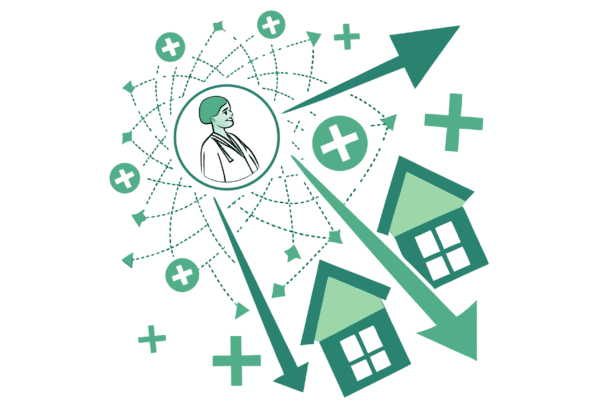The market for selling a Pediatric Physical Therapy practice in Indiana is active. For practice owners, this presents a significant opportunity, but a successful sale requires careful preparation and a clear understanding of your practice’s value. This guide provides insights into the current landscape, from valuation to post-sale considerations, to help you navigate this important transition. A comprehensive valuation is the foundation of a successful practice transition strategy.
Market Overview
The timing for selling a healthcare practice is a critical factor in the final outcome. Right now, the market for physical therapy clinics, including specialized pediatric practices, is strong. We see significant interest from various buyer types, creating a competitive environment for well-run practices.
Buyer Appetite
Private equity firms and larger strategic health systems are actively acquiring physical therapy practices. They are drawn to the stable demand and opportunities for growth in specialized fields like pediatrics. This high level of interest means you may have multiple options, but it also means you will be negotiating with experienced buyers. You need to be prepared.
The Indiana Landscape
In Indiana, this national trend holds true. The state’s favorable business environment and growing communities make it an attractive location for buyers looking to expand their footprint. For a pediatric PT practice owner, this means your clinic isn’t just a local service; it is a strategic asset that larger players want.
Timing your practice sale correctly can be the difference between average and premium valuations.
Key Considerations
Selling your pediatric physical therapy practice goes beyond just looking at revenue and profit. The true value is often in the details that a standard financial statement cannot show. For example, your referral relationships with local pediatricians, schools, and early intervention programs are a powerful asset. A buyer is not just acquiring your equipment; they are acquiring your stream of patients.
Similarly, the expertise of your clinical team is a major value driver. A practice that can operate successfully without being 100% dependent on the owner is much more attractive to a buyer. A strong, well-trained team ensures continuity of care and a smoother transition, which sophisticated buyers will pay a premium for. Protecting your legacy and staff is a key part of the process.
Your legacy and staff deserve protection during the transition to new ownership.
Market Activity
The healthcare M&A landscape is dynamic. For Indiana pediatric PT owners, staying aware of current activity is key to making informed decisions. Here are a few trends we are seeing right now:
- Increased Consolidation. Smaller, independent practices are being acquired by larger platforms. This trend allows owners to benefit from the resources of a larger organization while often maintaining clinical leadership. It is a way to de-risk your personal finances without having to give up control overnight.
- Focus on Platforms. Buyers are not just looking for a single clinic. They seek strong practices that can serve as a “platform” for future growth in a region. If your practice has a great reputation and multiple providers, it could be valued as a strategic platform, which commands higher multiples.
- Creative Deal Structures. The all-cash-at-close sale is becoming less common. Today s deals often include equity rollover, where you retain a stake in the new, larger company. This provides a “second bite at the apple,” offering significant potential upside when the larger platform is eventually sold.
Private equity’s influence in healthcare continues to grow.
The Sale Process
Many owners think selling a practice is like selling a house. You put up a “for sale” sign and wait for offers. A professional M&A process is very different and is designed to protect your confidentiality and maximize value. It begins long before buyers are involved, with a thorough preparation phase to get your financials and operations in order. This is followed by a comprehensive valuation. Only then do we confidentially approach a curated list of qualified buyers to create a competitive dynamic. The final stages involve negotiation, navigating the complexities of due diligence where many deals fall apart, and structuring the legal agreements to get you to a successful closing.
The due diligence process is where many practice sales encounter unexpected challenges.
How Your Practice Is Valued
Understanding what your practice is worth is the first step in any successful transition. Buyers do not value a practice based on revenue alone. They focus on profitability and cash flow. Valuation is typically based on a multiple of your practice’s earnings. While “rules of thumb” exist, a true valuation requires a deep analysis of your financials to calculate a normalized figure that reflects the real earning power of the business.
Here are the most common metrics used:
| Metric | Description | Typical Multiple |
|---|---|---|
| Adjusted EBITDA | Earnings before interest, taxes, depreciation, and amortization, normalized for owner-specific expenses. | 3.0x to 5.0x |
| Adjusted SDE | Seller’s Discretionary Earnings, which includes owner salary and perks added back to profit. | 2.5x to 4.0x |
| Gross Revenue | A less common method, sometimes used as a sanity check, based on trailing 12-month revenue. | Around 1.0x |
The multiple applied depends on factors like size, provider reliance, and growth trajectory. We find most practices are undervalued until their earnings are properly adjusted and their growth story is clearly told.
Curious about what your practice might be worth in today’s market?
Post-Sale Considerations
The day you close the sale of your practice is a major milestone, but it is not the end of the journey. Planning for what comes next is just as important as planning the sale itself. Your role after the sale is a key point of negotiation. You may stay on for a transition period, continue practicing as a clinical leader, or make a clean break. Defining this early on is critical.
Furthermore, the structure of your sale has massive tax implications. How a deal is structured can dramatically change your net proceeds after taxes. Finally, you have built more than a business. You have built a legacy and a team. Ensuring your patients continue to receive excellent care and that your staff are in a good position with the new owner is a priority for most sellers. These considerations should be part of the negotiation from the very beginning, not an afterthought.
The structure of your practice sale has major implications for your after-tax proceeds.
Frequently Asked Questions
What is the current market like for selling a Pediatric Physical Therapy practice in Indiana?
The market for selling Pediatric Physical Therapy practices in Indiana is currently very active and competitive. There is strong interest from private equity firms and larger strategic health systems drawn by the stable demand and growth opportunities in pediatrics. Indiana’s favorable business environment and growing communities make it an attractive location for buyers.
What factors do buyers consider when valuing a Pediatric Physical Therapy practice?
Buyers focus on profitability and cash flow rather than just revenue. Valuation is typically based on a multiple of your practice’s earnings, such as Adjusted EBITDA (3.0x to 5.0x) or Adjusted SDE (2.5x to 4.0x). Other key value drivers include referral relationships, the expertise of the clinical team, and the practice‚Äôs growth story and platform potential.
How important is timing when selling a Pediatric Physical Therapy practice in Indiana?
Timing is critical as it can significantly affect the valuation you receive. The current market timing is favorable, with strong buyer appetite creating opportunities for premium valuations. Careful preparation and strategic timing can maximize your sale price and help you create a competitive environment among buyers.
What should practice owners know about the sale process of a Pediatric Physical Therapy practice?
Selling a practice is more complex than selling a standard business. It requires a professional M&A process to maintain confidentiality and maximize value. The process includes preparation, comprehensive valuation, approaching qualified buyers, negotiating terms, managing due diligence, and structuring legal agreements carefully to ensure successful closing.
What are important post-sale considerations for sellers of Pediatric Physical Therapy practices in Indiana?
Post-sale considerations include deciding your role after the sale (such as staying for a transition period or making a clean break), understanding the tax implications of how the sale is structured to maximize net proceeds, and ensuring the continuity of patient care and staff welfare under new ownership. These factors should be negotiated early, not after the sale closes.



